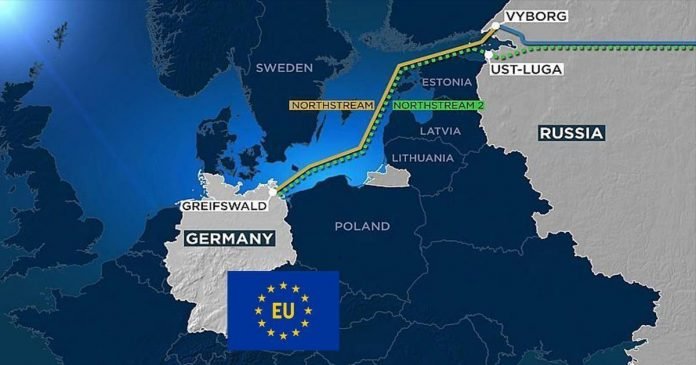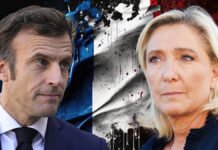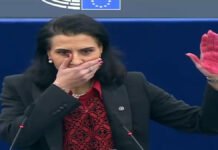Europe’s poor and vulnerable could be facing their coldest winter for decades as fuel prices continue to climb.
The UK is far from alone in its energy crisis. Across Europe, governments are acting to shield consumers from soaring bills, with nerves growing about the coming winter.
Europe is battling a record-breaking surge in energy prices that threatens to derail the post-pandemic economic recovery, strain household incomes and even tarnish the nascent green transition.
The unprecedented recovery-related energy price spikes, prompting raising alarms about whether families will be able to remain warm as the northern hemisphere’s winter approaches.
Politicians are also anxious about the electoral repercussions and how spiking prices will fuel further inflation.
The price jumps in natural gas are due largely to a surge in demand in Asia and low supplies of in Europe, which has seen an astonishing 280% increase in wholesale gas prices. Electricity prices are also soaring because natural gas is used across the continent to generate a substantial percentage of its electricity.
The questions on the EU’s reliance on Russian energy has been raised again. Depending on who you ask, Nord Stream is either a sustainable way to ensure European energy security or a proxy for Russian hybrid warfare.
Moscow’s decision to refrain from boosting natural gas shipments via Ukrainian pipelines is worsening the crunch and adding to claims that Russia is using the energy needs of its European neighbours to hold them to ransom.
Ahead of this week’s EU energy meeting, Spain has called for a “policy menu” to help the bloc to react immediately to price surges. In a letter to the European Commission, the economy minister Nadia Calviño and her colleague in charge of ecological transition, Teresa Ribera, said “member states should not need to improvise ad hoc measures every time markets malfunction”. Spain wants measures to limit financial speculation on the EU carbon market and common action to buy gas reserves.
The EU executive is also facing calls to investigate Russia’s state gas monopoly, Gazprom, after MEPs said they suspected the company of market manipulation. Russia provides 41% of EU gas, but for months Gazprom has refused to increase supply to the spot market, where trade is for short-term needs rather than long-term contracts. The move is interpreted as the Kremlin’s attempt to twist arms for speedy approval of Nord Stream 2, the controversial pipeline under the Baltic Sea that will double Russian gas exports to Germany. Completed earlier this month, the pipeline cannot start delivering gas until it clears regulatory hurdles in Germany. In a letter to the European Commission this month, 40 MEPs said they were suspicious of the company’s “effort to pressure” Europe to quick approval of the pipeline.
Some European politicians are accusing the Kremlin of deliberately worsening Europe’s energy crisis as a tactic to pressure the European Union into speeding up certification of the just completed Nord Stream 2 gas pipeline, which bypasses Ukraine and runs from Russia to Germany under the Baltic Sea.
Gazprom is the Kremlin’s arm, which may be manipulating European gas market to push gas prices up, currently breaking all-time records. Pressing Europe to approve NS2 operation despite it is in breach of EU rules? MEPs call European Commission to lounch investigation on Gazprom! pic.twitter.com/BXXTUhxhap
— Andrius Kubilius (@KubiliusA) September 17, 2021
The International Energy Agency has called on Russia to boost gas exports. “The IEA believes that Russia could do more to increase gas availability to Europe and ensure storage is filled to adequate levels in preparation for the coming winter heating season,” it said in a statement.
Aside from geopolitical intrigue, the energy price increase is intensifying the conflict over the EU’s response to the climate emergency. Lawmakers have already blamed the spike in prices on high CO2 price, a product of EU regulation. Under the EU’s pioneering Emissions Trading System, electricity producers and energy intensive industries are required to buy pollution permits.
Poland, which is already battling the EU over coal mining, has complained about the costs of buying ETS allowances, after CO2 prices hit a record level. Earlier this month the EU’s CO2 price hit €62; it was €30 at the start of the year.
According to the EU’s top official in charge of the green deal, Frans Timmermans, only one-fifth of the current energy price rises can be attributed to CO2 prices.
His analysis is backed up by the Ember, a thinktank aimed at promoting the transition away from coal: the group has found that fossil gas prices account for most EU electricity prices from combined cycle gas turbines.
Timmermans told the European parliament last week that current energy prices showed the necessity of speeding up the shift to renewable energy. “The irony is if we had had the green deal five years earlier we would not be in this position because then we would have less dependency on fossil fuel natural gas.”
A series of market, geographic and political factors have coalesced into a perfect storm that shows no signs of abetting as the continent enters the autumn season, temperatures gradually decrease and heating becomes indispensable.
Analysts are already warning the crisis, which is exacerbated by a mixture of temporary and structural problems, will be prolonged and the worst may yet to come.
Prices of natural gas are skyrocketing: at the Dutch Title Transfer Facility, Europe’s leading benchmark, prices have risen from €16 megawatt per hour in early January to €75 by mid-September, a hike of more than 360% in less than one year.
Although the European Union is gradually cutting down on its long-time dependency on fossil fuels – renewables became the bloc’s main source of electricity for the first time in 2020 – the shift has not been fast and widespread enough to contain the fallout from the crunch.
Together, natural gas and coal still supply more than 35% of the EU’s total production, with gas representing over a fifth. The energy mix is vastly different across the bloc: fossil fuels have a marginal share in Sweden, France and Luxembourg, but take up more than 60% of total production in the Netherlands, Poland, Malta and Cyprus.
As coal, the most polluting fuel, is progressively phased out, many countries resort to natural gas as a transitional resource to act as a bridge before green alternatives, like wind turbines and solar panels, are rolled out. Moreover, gas is also used for residential heating and cooking, making the price surge even more noticeable in the final expenses of consumers.
Britain most exposed
Political leaders are trying to assuage fears that the public could go without power or heat as the temperature drops.”We do not expect supply emergencies to occur this winter,” Kwasi Kwarteng, the UK business secretary, told Parliament on Monday. “There is absolutely no question … of the lights going out or people being unable to heat their homes.”
The deteriorating situation is quickly transforming into a full-blown crisis. Spain has announced emergency measures to cut energy bills, while France plans to make one-time €100 ($117) payments to nearly 6 million lower-income households. In the United Kingdom — where natural gas spikes have already threatened to exacerbate food shortages — Prime Minister Boris Johnson’s team is debating the extent to which it should offer state support.
A UK price cap for consumers is being maintained, but that’s helping to push small British energy companies out of business.
The global gas grab is a major concern because half of the UK’s electricity is generated in gas-fired power plants. There has also been a higher than normal demand for gas power in recent months following a series of nuclear reactor outages and the recent shutdown of a major power cable that brings in electricity from France.
The UK has also had one of its least windy summers since 1961, meaning wind power has been low. Experts fear the situation will become worse as colder temperatures draw in.
Support Independent Journalism Today
Our unwavering dedication is to provide you with unbiased news, diverse perspectives, and insightful opinions. We're on a mission to ensure that those in positions of power are held accountable for their actions, but we can't do it alone. Labour Heartlands is primarily funded by me, Paul Knaggs, and by the generous contributions of readers like you. Your donations keep us going and help us uphold the principles of independent journalism. Join us in our quest for truth, transparency, and accountability – donate today and be a part of our mission!
Like everyone else, we're facing challenges, and we need your help to stay online and continue providing crucial journalism. Every contribution, no matter how small, goes a long way in helping us thrive. By becoming one of our donors, you become a vital part of our mission to uncover the truth and uphold the values of democracy.
While we maintain our independence from political affiliations, we stand united against corruption, injustice, and the erosion of free speech, truth, and democracy. We believe in the power of accurate information in a democracy, and we consider facts non-negotiable.
Your support, no matter the amount, can make a significant impact. Together, we can make a difference and continue our journey toward a more informed and just society.
Thank you for supporting Labour Heartlands












